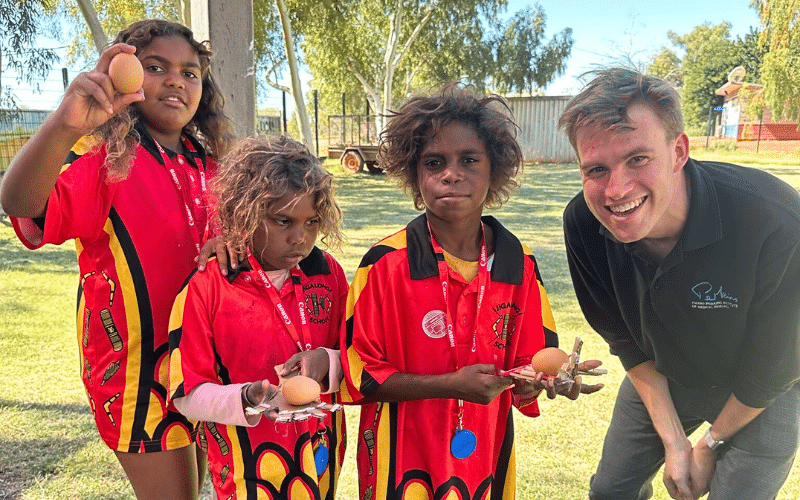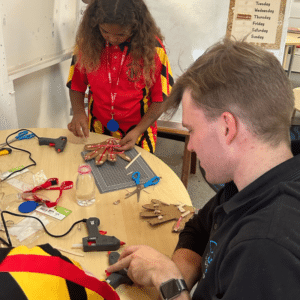
Jigalong Remote Community School students, living on the edge of the Great Sandy Desert on the western side of the Rabbit Proof Fence, were last week introduced to the world of bio-engineering.
The lesson came from science demonstrator at the Harry Perkins Institute of Medical Research’s teaching laboratory, the Lotterywest Biodiscovery Centre.
Trainer Steven Blake instantly captured everyone’s attention with an experiment that included an explosion before setting students the challenge of building a bionic hand from materials they could access. They then had to use their new hand to carry an egg without breaking it.

Perkins trainer, Steve assists a student with making their robotic hand.
“This experiment links to the work of the bio-engineers at the Harry Perkins Institute of Medical Research, who build and use 3D printers to create body parts and develop electrical or AI innovations to solve medical problems.
“At Jigalong the students used cardboard, pop sticks, string, straws, and hot glue to create their artificial hands.
“It’s the first time we’ve taken experiments that are taught at the Perkins to thousands of metropolitan students each year to a remote community.
“A passion for science and the first ever notion that there are careers in science can often come from doing an exciting experiment.
“As well as having fun and learning something new, doing science experiments exposes students to critical thinking skills, basic scientific method skills of asking questions, predicting outcomes, experimenting to see if the predictions were right and designing novel tools and techniques to solve health problems”, said Steven Blake from the Lotterywest Biodiscovery Centre.
After the Jigalong visit the School of Isolated and Distance Education’s (SIDE) Mini Industry Roadshow, including the Harry Perkins Institute will travel to Christmas and Cocos Island, the Kimberley and Shark Bay.
